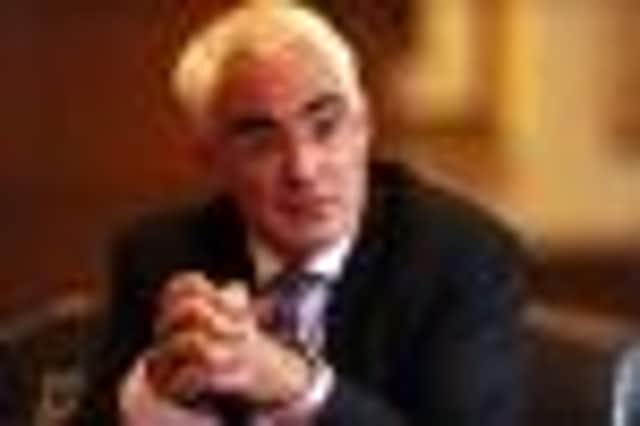Scottish independence: NHS future clarity sought


Scottish patients requiring specialist surgery south of the Border would have to go through the same process as if they were travelling to a European Union state, Better Together said. This could lead to delays in treatment and medical costs having to be paid by the patient before being reimbursed.
Health boards in Scotland can at present arrange travel to specialist transplant centres such as Freeman Hospital in Newcastle or Papworth Hospital in Cambridge and there are few, if any, costs for patients. However, if Scotland votes to leave the UK in the 2014 referendum, patients seeking treatment in England, Wales or Northern Ireland would have to use one of two complex routes agreed between EU member states. Those healthcare arrangements are rarely used because of the complexity.
Advertisement
Hide AdAdvertisement
Hide AdThe health issue is raised today by Sally Russell, 26, from Glasgow, writing exclusively for Scotland on Sunday’s Scotland Decides series. Russell, who has suffered from cystic fibrosis since birth, opted to undergo a rare double-lung transplant at Freeman Hospital in Newcastle. The seven-hour procedure is not available in Scotland.
“My consultant in Glasgow told me that when my time for a transplant came, the operation would take place at the Freemans as it was the best – and also there was nowhere in Scotland that could do it,” said the university graduate.
The provision of cross- Border healthcare is expected to open up a new battle line in a debate that has been dominated by rows over EU membership, retention of the pound and nuclear weapons. Better Together, led by former chancellor Alistair Darling, last night claimed the current “seamless” cross-Border medical treatment system would be replaced by “a layer of bureaucracy and decision-making”.
Jackie Baillie, a director of Better Together and Labour’s shadow health secretary, said: “It doesn’t matter if you are from England, Wales, Northern Ireland or Scotland – you can now go to any part of the country to get the care that your condition requires. You don’t need to worry about anything, other than getting the treatment you need.
“If we leave the UK, all of this will change. We would be replacing a simple, internal relationship with an international, cross-Border one.”
Baillie added patients would have to “worry about form filling and bureaucracy at a time when all they should be thinking about is the life-changing operations they need to have”.
Under the S2 European healthcare system, patients can travel to a state-funded hospital in the European Economic Area – the EU plus Iceland, Liechtenstein and Norway – for planned treatment. Better Together says this is the system that would have to be used if Scotland voted for independence and patients needed treatment at specialist units in the rest of the UK.
Macmillan Cancer Support, which advises on treatment abroad, warned the process “can take a number of weeks, possibly months”.
Advertisement
Hide AdAdvertisement
Hide AdMargaret Watt, chairwoman of the Scotland Patients Association, said: “Whatever the outcome of the referendum, there is already pressure on patients when it comes to travelling for medical treatment and the system for treatment south of the Border is complicated enough. We wouldn’t want to see patients placed with any additional burdens.”
A spokesman for Yes Scotland said: “All medical matters in an independent Scotland would be up to the new Scottish Government, including any cross-Border agreements on care.”
Health secretary Alex Neil last night insisted that hospitals in Scotland will keep existing arrangements with counterparts south of the Border to cater for specialist operations, even in the event of Scotland breaking away from the UK.
He added: “In an independent Scotland, these arrangements would not change”
Twitter: @RoryReynolds